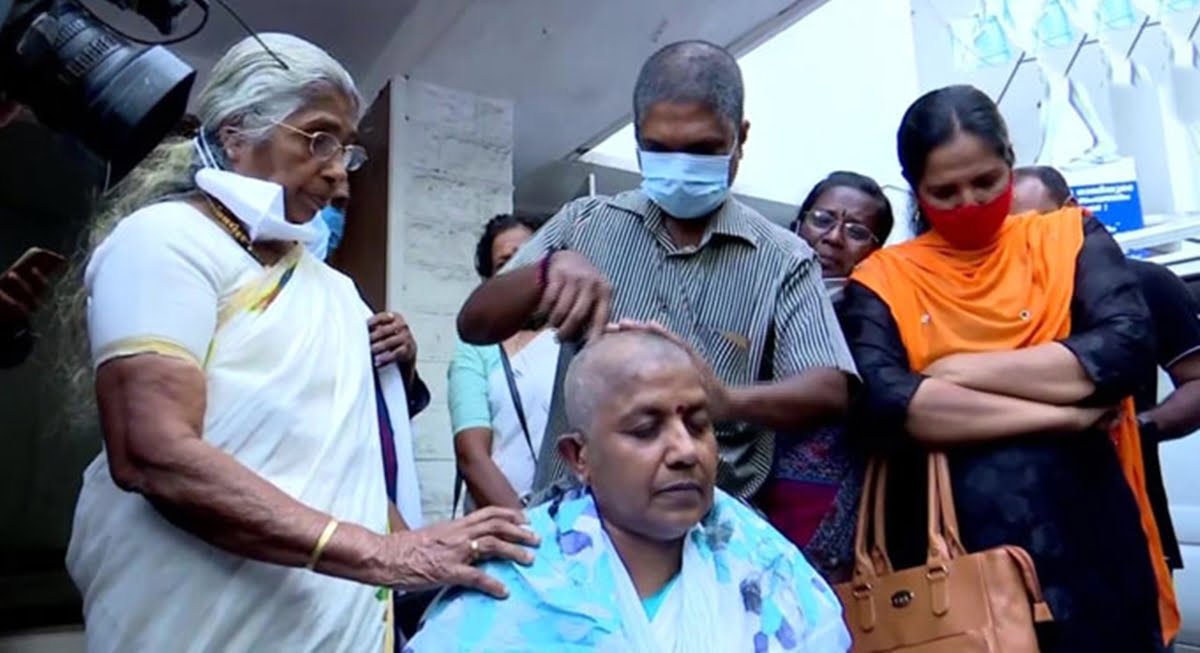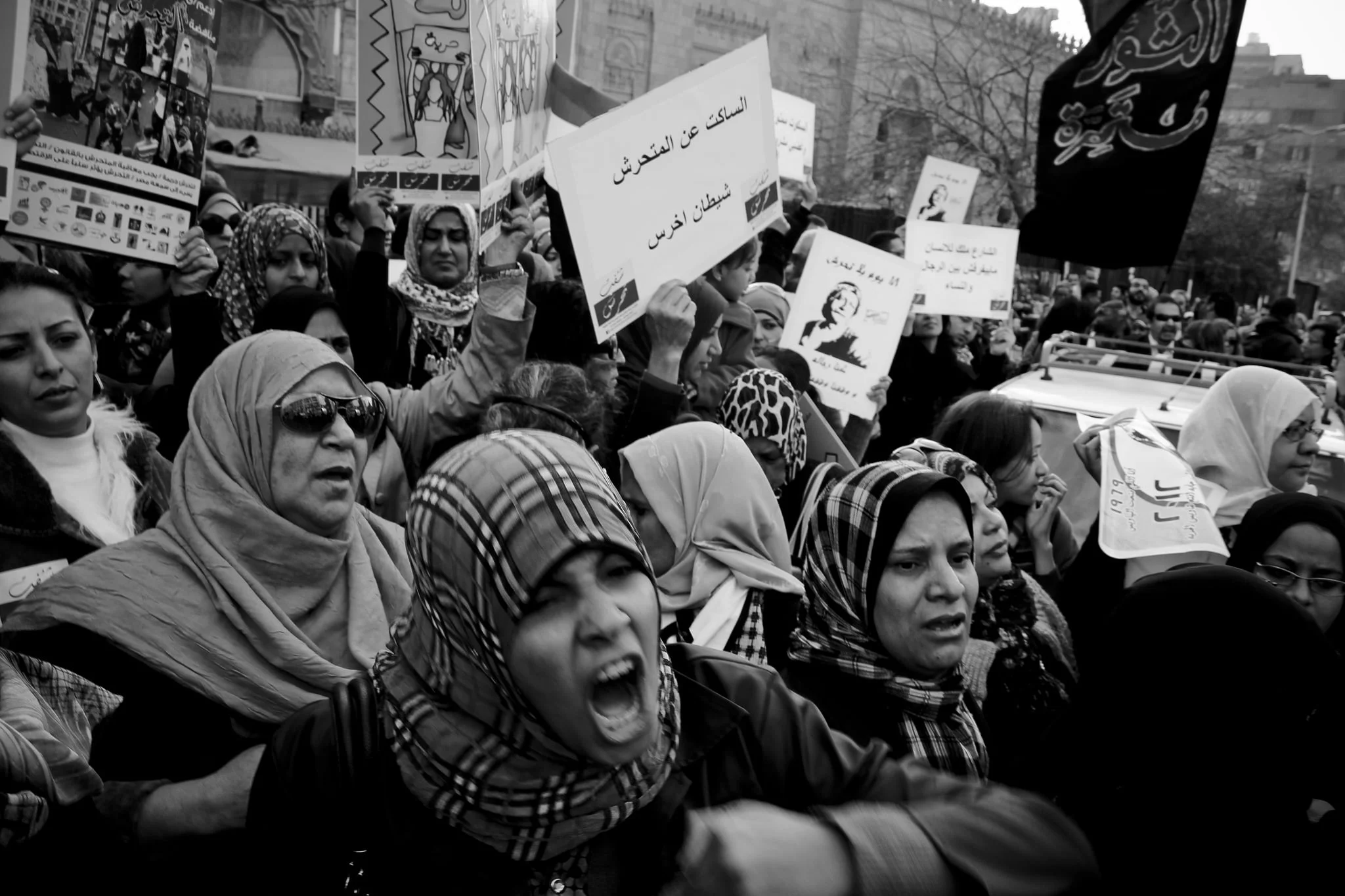Moments after the list of contesting candidates for the upcoming assembly elections was released by Kerala Congress, former Kerala Mahila Congress President Lathika Subhash announced her resignation from office. After a supposedly deserving candidacy and a long tenure of involvement and commitment to the party, Lathika Subhash was denied a ticket to contest in the town of Ettumanoor by the party president, which was instead given to a faction of the Kerala Congress (M). Within hours, she was also denied a ticket at Vypin, a group of islands in Kochi, where too she is a popular figure.
Lathika Subhash was denied a ticket to contest in the town of Ettumanoorby the party president, which was instead given to a faction of the Kerala Congress (M). Within hours, she was also denied a ticket at Vypin, a group of islands in Kochi, where too she is a popular figure.
However, Lathika Subhash’s protest did not end with her resignation. Following the disheartening decision made by the (needless to say, male) party leaders, Lathika shaved all her hair off in protest, at the verandah of the party headquarters, surrounded by other emotional members of the Mahila Congress.
Writer, former journalist, and politician for about four decades, Lathika Subhash declared her act as an intolerance to the constant subjugation of female political members in the party. The Mahila Congress had proposed for 20% seats to be for women, which was blatantly dismissed by the Kerala Pradesh Congress Committee (KPCC), having not even one from each district. Expressing an act of solidarity with the women who have worked tirelessly for the party and its candidates for years, Lathika Subhash had provided the KPCC with a detailed list of deserving candidates from varying districts and ages to be considered for candidature, most of whom were ignored.

Also read: Aunty, Didi, Bhabhi, Tai: How Indian Women Politicians Are ‘Domesticated’ So They Fit In
Addressing her grounds of resistance, Lathika Subhash revealed that one side of her head is shaved off in protest against the ‘years of anti-women policies in the state’, and the insensitivity of the Central Government towards the atrocities against women in the north, while the other half is in protest against the suppression of women by her own party.
Out of 86 candidates standing for the Congress in Kerala, only 9 are women. Meanwhile, of the list of 112 BJP candidates, only 5 are women, an evidently poorer proportion. State Vice President of the BJP, Sobha Surendran, was also denied a ticket until after much public outcry and speculation, she was finally offered a seat in Kazhakootam. The current ruling party, the CPI(M) have 12 female candidates out of the total of 83, which is nothing close to ideal, but is, nevertheless, a striking improvement.
Having started her political endeavor as Kerala Students Union (KSU) Counsellor at Kuriakose Elias College, Mannanam, Lathika Subhash had twice been elected as Jilla Panchayat Member and was the first woman Jilla Panchayat president for a term in Kottayam in the year 2000. Paving a political career out of pure grit and struggle, she has been an icon for politicians and activists in the state and across parties.
Why this matters to Kerala
In all its glory, Kerala has a high female literacy rate, life expectancy, and active political awareness from its female population. However, with a sex ratio of 1084 females to 1000 males, there is a glaring inadequacy in representation of women in the state assembly and parliament.
It’s interesting to note that the proportion of women in legislative bodies has decreased since 1957. The percentage of women members of the legislative assembly (MLAs) fell from 10.23% in 1996 to 6.06% in 2016, even as the number of women candidates doubled over these five elections.
Among candidates, they are often offered tickets to towns where they have little public backing, or pitted against a tough opposition. In 2011 for instance, Lathika Subhash was made to compete against the famous V. S. Achuthanandan of CPI(M), who was the former Chief Minister of Kerala.
However, the issue of insufficient number of women in representative bodies in Kerala, nay, India, doesn’t end with the lack of political mobility. The time and commitment that goes into a political career is not one that comes easy for a woman. The lack of investment, support, and endorsement, within family and society, are among the larger hindrances for woman politicians who set out to be an agent of change.
During a live debate on her protest, Lathika Subhash briefly addressed the strife of women politicians in India, to Lok Sabha MP Rajmohan Unnithan with a striking euphemism, “While you spend a rupee on political activity, us women have to spend five rupees for the same.”

From the vocal women-led protests like the Nilpu Samaram (Standing Agitation) of 2014 and Pembilai Orumai (Women Unity) of 2015, to the massive protests against the Citizenship Amendment Act of 2019 that had hit national headlines, Kerala is not inherently new to public agitation. The protest of Lathika Subhash was not only unforeseen but supposedly ‘shocking’ to the rest of the state. Nevertheless, built by the proletariat and the mass movements carved by early communism against caste hierarchies, the power of protest is not forgotten in the minds of Malayalis. Therefore, amidst the unsuspecting passing of legislative baton to another male member, this act of resistance by a KMC President would, with any luck, sow a moment of thought to the populace.
The protest of Lathika Subhash was not only unforeseen but supposedly ‘shocking’ to the rest of the state. Nevertheless, built by the proletariat and the mass movements carved by early communism against caste hierarchies, the power of protest is not forgotten in the minds of Malayalis.
Also read: Women In Politics: Looking Beyond Reservations
Kerala’s political gamble between women and religion
The KPCC has been increasingly rationalising ignorance to expand public support in the past year. While the toxicity of Hindutva hasn’t succeeded in taking over the government of Kerala yet, the state is a boiling pot of conditioned misogyny and communalism waiting to spill, carefully harnessed over many years by the BJP and now has the UDF playing the same game. The Sabarimala issue, which is once again under consideration by the Supreme Court in the light of elections, was prematurely stirred by the UDF recently.
Earlier this year the UDF released the draft of a legislation– Sabarimala Ayyappa Devotees (Protection of Religious Rights, Customs and Usages) Act, 2021- crafted to incarcerate anyone who would violate the ritual practices of the temple– to be implemented if the party won upcoming elections. While the SC had permitted temple entry for women in 2018, the LDF-led state government returned to the stance of restricting women from ages 10 to 65 from entering the shrine in 2020. Chief Minister Pinaray Vijayan however, addressed the issue recently in light of the UDF draft and assured that the state government will discuss with ‘every section of society’ prior to implementation of whatever the SC decrees.
The UDF attempt at gnawing at religion and oppression to their benefit doesn’t end here. A few days ago, a disturbing video was released by the UDF drawing a seemingly stark contrast between “real believers” and women who ‘push themselves’ to Sabarimala -not out of faith, but supposedly out of spite.
The video, now taken down by the UDF after widespread criticism, shows on one side, the black-clad, barefoot men, meant to be the true pilgrims of Sabarimala; and on the other a group of “lipstick wearing, selfie-taking” women with covered feet, makeup and knapsacks, taking selfies, while under the protection of the police. A group of devout Hindu women are shown watching this visual in contempt. “A legislation for the protection of faith, UDF’s promise” was the closing statement of the campaigning video which was later taken down.
Not only were the contents of the video hateful and demeaning to women, the narrative was largely drawn by the incident of Bindu and Kanaka who first entered the temple under police protection. In early 2019, Kanaka Durga and Bindu Ammini were the first Malayali women to enter the Sabarimala and pray at the sanctum in centuries. On account of the raging state-wide protest against the temple entry by the public, largely fueled by the right wing, Bindu and Kanaka were given police protection throughout the climb.
Misogyny in India has been intertwined with religion for centuries, both as a facilitator and a consequence of each other. The UDF and BJP’s attempt at reaping from these for political motives is not only sickening and shameful but also revealing.
Featured image source: Telangana Today
About the author(s)
Vyshnevi Divya Satheesh is a ‘queer’ious teen grappling onto the little good left in the world, still unlearning heteropatriarchy and whistling through life with an undying love for literature, music and chaya. She can be found on Tumblr, Instagram and can be reached on her email: vyshnevi.sat@gmail.com





Well done, Vyshnevi Divya Satheesh! Perfect inferences. Indian politics is, by and large remains still under the patriarchal ‘patronage’. No one has still thought of giving whatever due to women.
Keep up the spirit and best wishes.